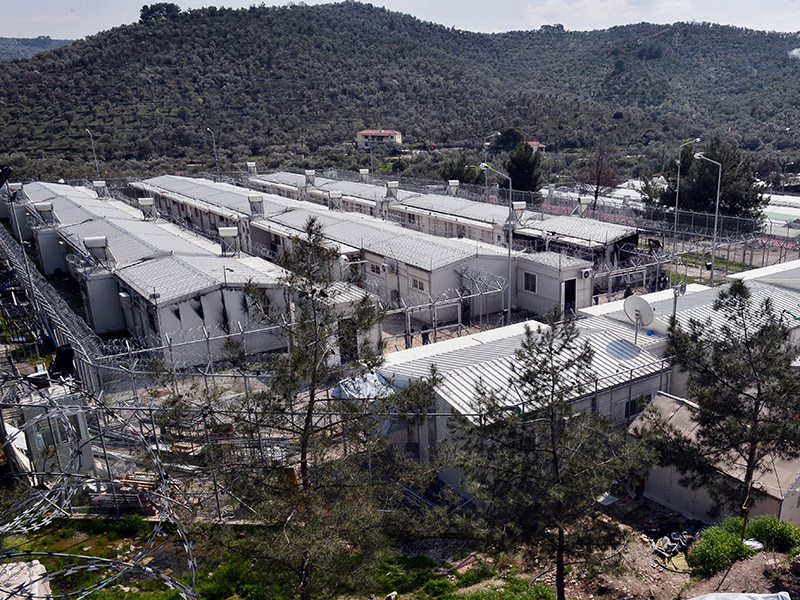Two Years After EU-Turkey Deal, New HIAS Report Puts EASO Under the Microscope
By Danai Papachristopoulou, Staff Attorney, HIAS Greece
Mar 26, 2018

A photo taken on March 16, 2017 shows a view of the Moria migrant camp on the island of Lesbos.
(Louisa Gouliamaki/AFP/Getty Images)
Sunday, March 18, marked the second anniversary of the release of the EU-Turkey Statement, a pivotal agreement between the EU and Turkey that shaped the region’s migration management. According to the agreement, ‘all new irregular migrants crossing from Turkey into Greek islands as from 20 March 2016 will be returned to Turkey’.
On March 20, 2016, the implementation of the more commonly known EU-Turkey Deal commenced, and radically changed the landscape for refugees and asylum seekers on the islands. This new reality triggered major changes such as the imposition of geographic restrictions on the island to all new arrivals (whereby thousands of people are banned from moving to the mainland) and the amendments to the Greek asylum legislation.
Now, two years on, the hardships for refugees on the islands persist and the standards of refugee protection continue to decrease.
However, while much has been written about implications of the EU-Turkey Deal for the refugee population on the islands, a lesser known consequence of the deal has been the increased role played by the European Asylum Support Office’s (EASO), the EU Agency for asylum matters. After the agreement went into effect, EASO took on a questionable role in conducting asylum interviews and vulnerability assessments with asylum seekers, as well as in drafting recommendations on the hotpots of the Eastern Aegean islands.
Poor living conditions and the deterioration of mental and physical health due to the confinement policy deserve attention. At the same time, the procedural shortcomings of the asylum process on the islands after the radical changes introduced following the commencement of EASO’s involvement in the asylum procedure cannot be ignored.
Indeed, the legal basis of EASO’s operation in Greece, its competence to do so under EU law, as well as the quality of the interviews and recommendations being drafted have been questioned.
Today, HIAS lawyers in Greece released an extensive new report noting the shortcomings on the procedures before the EU Agency. The report, “EASO’s Operation on the Greek Hotspot: An overlooked consequence of the EU-Turkey Deal,” was released under the Greece Refugee Rights Initiative, a joint initiative between HIAS and Islamic Relief USA (IRUSA), the U.S. arm of the humanitarian assistance and advocacy organization.
The report follows an April 2017 complaint lodged before the EU Ombudsman by the German nonprofit organisation European Centre for Constitutional and Human Rights (ECCHR). In January 2018, HIAS supported this complaint by submitting an Expert Opinion based on the on-the grounds experience of the legal team.
With the EU-Turkey Deal still considered viable and the EASO both expanding its role in the reception and asylum procedures in Greece and strengthening its role on the European level, it is important that faulty procedures and bad practices are urgently addressed and put under scrutiny.
The new HIAS report, which provides the main arguments included in the Expert Opinion, argues that the multifaceted and extensive involvement of EASO in the asylum procedure in Greece is not provided in the Agency’s current mandate and the quality of the overall operation of the Agency is questionable.
Click here to download the new report or read it in full below.


